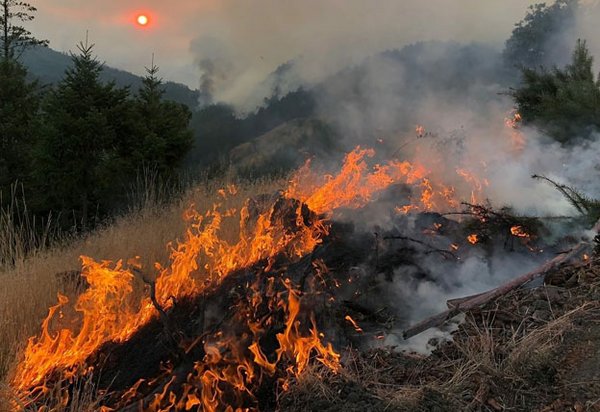- Share this article
- Subscribe to our newsletter
World scientists declare global emergency
“Despite 40 years of major global negotiations, we have continued to conduct business as usual and have failed to address this crisis,” says William J. Ripple, professor of ecology at the University of Oregon State University – College of Forestry, in Corvallis/USA. He adds that climate change has arrived and is accelerating faster than many scientists expected.
In a paper published in November in the online journal BioScience, the lead authors, William Ripple and his colleague Christopher Wolf, along with more than 11,000 scientist signatories from 153 countries, declare a climate emergency.
The scientists point to six areas in which humanity should take immediate steps to slow down the effects of a warming planet:
- Energy. Implement massive conservation practices, replace fossil fuels with low-carbon renewables, leave remaining stocks of fossil fuels in the ground, eliminate subsidies to fossil fuel companies and impose carbon fees that are high enough to restrain the use of fossil fuels.
- Short-lived pollutants. Swiftly cut emissions of methane, soot, hydrofluorocarbons and other short-lived climate pollutants. Doing so has the potential to reduce the short-term warming trend by more than 50 per cent over the next few decades.
- Nature. Restore and protect ecosystems such as forests, grasslands, peatlands, wetlands and mangroves, and allow a larger share of these ecosystems to reach their ecological potential for sequestering atmospheric carbon dioxide, a key greenhouse gas.
- Food. Eat more plants and consume fewer animal products. The dietary shift would significantly reduce emissions of methane and other greenhouse gases and free up agricultural lands for growing human food rather than livestock feed. Reducing food waste is also critical – the scientists say at least one-third of all food produced ends up as garbage.
- Economy. Convert the economy to one that is carbon free to address human dependence on the biosphere and shift goals away from the growth of gross domestic product and the pursuit of affluence. Curb exploitation of ecosystems to maintain long-term biosphere sustainability.
- Population. Stabilise a global human population that is increasing by more than 200,000 people a day, using approaches that ensure social and economic justice.
“Mitigating and adapting to climate change while honouring the diversity of humans entails major transformations in the ways our global society functions and interacts with natural ecosystems,” the paper states. “We are encouraged by a recent surge of concern among governments, grassroots citizens and young generations.”
Urgent action needed to stop further rise in GHG emissions
In recent decades, multiple global assemblies have agreed that urgent action is essential, but greenhouse gas emissions are still rapidly rising, the scientists warn, noting that other ominous signs from human activities include sustained increases in per-capita meat production, global tree cover loss and the number of airline passengers.
According to the paper, there are also some encouraging signs – including decreases in global birth rates and decelerated forest loss in the Brazilian Amazon, as well as increases in wind and solar power – but even those measures are tinged with worry.
“Global surface temperature, ocean heat content, extreme weather and its costs, sea level, ocean acidity and area burned in the United States are all rising,” Ripple says. “Globally, ice is rapidly disappearing, as demonstrated by decreases in minimum summer Arctic sea ice, Greenland and Antarctic ice sheets, and glacier thickness. All of these rapid changes highlight the urgent need for action.”
(OSU/wi)
Reference:
William J Ripple, Christopher Wolf, Thomas M Newsome, Phoebe Barnard, William R Moomaw : World Scientists’ Warning of a Climate Emergency; 1919, in BioScience, biz088, https://doi.org/10.1093/biosci/biz088
https://academic.oup.com/bioscience/advance-article/doi/10.1093/biosci/biz088/5610806
More information:





Add a comment
Be the First to Comment